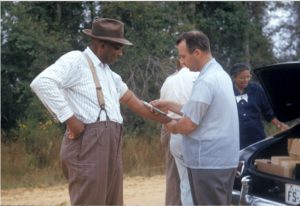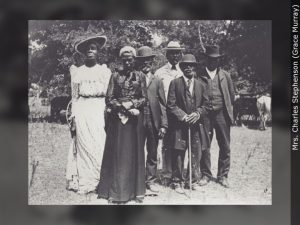Photo: Gladson Xavier on Pexels.com
This article first published 1/29/21 by the Minnesota Spokesman-Recorder. https://spokesman-recorder.com/2021/01/29/part-ii-a-soldiers-story-a-fathers-lessons-about-americas-class-war/
It was only after my father’s death that I understood the broader political context of his struggle at Chrysler. While the celebrated head of the United Auto Workers Walter Reuther was the only nonblack speaker invited to speak at the 1963 March on Washington, it was later revealed that his union was at that time “negotiating discriminatory union contracts. These contracts locked Black workers in de facto segregated job classifications in violation of Title VII of the Civil Rights Act,” according to the labor historian Philip Foner.
By 1960, according to data compiled by the U.S. Commission on Civil Rights, Black workers accounted for seven-tenths of one percent of the skilled labor force in Detroit auto plants, yet 42.3% of the entire workforce. In the 1973 documentary, “Finally Got the News,” about the radical League of Revolutionary Black Workers, one White autoworker recalled:
“I took three tests, now one of the math tests I took I didn’t do too well on. The fella who was running the tests said ‘well I tell you what: you go home and study up on this a little bit and come back and see me in a week.’ I know G-d-n well he wasn’t going to tell that to any Colored boy.”
The League of Revolutionary Black Workers was a Marxist-influenced cell formed in the aftermath of Detroit’s 1967 riots. While it did not accept White members, it worked closely with White workers and encouraged them to organize their own so that the proletariat could fight together against the bosses and the Vichy labor leadership at the point of production that was the stronghold of the capitalist system.
[Related Story: Part I: A soldier’s story: A fathers lessons about America’s class war]
A chapter at Polaroid’s Boston headquarters initiated the international Boycott and Sanctions movement that led ultimately to Apartheid South Africa’s downfall. To the best of my knowledge, there was no League chapter in Indianapolis but my father certainly shared in the organization’s objectives, which was, primarily, the abolition of a political economy that exploited workers of all races.
The UAW and the Big Three automakers conspired to undermine the League as part of a broader effort to unspool the interracial coalitions that emerged in the New Deal and had, by the time of my father’s gas station confrontation, reduced poverty to historic lows, and the wealthiest 1 percent’s slice of the national pie to its smallest share ever.
In one revealing statement, Reuther boasted of the UAW: “We make collective bargaining agreements not revolutions.”
My fondest memory of my father was his laugh—loud and free like a runaway train—and few things amused him more than Earl Butz, the Ford administration’s Agriculture Secretary. When the singer Pat Boone asked Butz what the GOP could do to attract more Black voters, Butz, a corporatist who opposed food stamps and the school lunch program tried to discredit Black political leadership such as that exemplified by the League.
Parroting the White supremacists who invented a ring of Black rapists to turn public sentiment against a populist, bi-racial political movement that had lifted living standards for the bulk of North Carolina’s working class in 1898, Butz replied: “The only thing the Coloreds are looking for in life are tight —, loose shoes and a warm place to s—.”
My father would howl with laughter at any mention of Butz’s name and as a child, I thought my old man was laughing at his caricature. He wasn’t. He was laughing at Butz’s pathetic and clumsy effort to implode the class consciousness at the heart of workers’ growing prosperity.
As the Black Panthers were known to say, my father did not hate White people, he hated the oppressor. He loathed class enemies such as Oprah and Clarence Thomas and Indianapolis’ neoliberal Black school superintendent got along with my Jewish pediatrician like a house afire, and when Ted Kennedy visited Indianapolis during the 1980 Democratic primaries, my father volunteered to pick him up from the airport.
At my dad’s repast, my brother’s White father-in-law Dave approached me in the parking lot, grabbed my hand with such force I thought he might crush it, peered me straight in my eye, and said: “Your dad was a great man, Jon.”
It occurred to me that while my father and Dave had not worked together, they were both blue-collar workers in a Rust-Belt city at roughly the same time, and as a result, they recognized in one another an ally in the fight against the bosses. I never saw a tense moment between the two at family gatherings and none of my siblings can recall my father ever uttering a negative word about Dave.
Since my father died nearly a decade ago, his birthday has triggered for me a month-long period of mourning that typically dissipates in the days after the anniversary of his death on January 15.
But his life is particularly salient today as pundits like Matt Taibi, Jacobin’s founder, Bhaskar Sunkara, the New Yorker’s Nicholas Lemann, the intellectual, Adolph Reed and others gaslight the role that White racism has played in America’s decline, and instead put the onus on African American aggrievement that they conflate, mistakenly, with identity politics, and describe, absurdly, as polarizing.
If we’re to move past this crisis of capitalism, the American Left needs to understand that it was White people, not Blacks who created identity politics to help put down a movement led by Black workers who overwhelmingly favored universal policies such as full employment, guaranteed national income, single-payer health care, progressive taxes, community schools, affordable college tuition, worker-owned cooperatives, environmental remediation, and workplace democracy.
The Johnson and Nixon administrations were the most forceful proponents of affirmative action and conservative Black Democrats like Barack Obama and Kamala Harris are the product of Wall Street and Democratic Party apparatchiks, not the Black community writ large.
Hence, the African American working class is blameless for what has befallen the nation. Or, as the slain Black activist George Jackson once wrote: The major obstacle to a united left in this country is White racism.”
Jon Jeter is a professional journalist, commentary writer and social media commentator who has served stints at the Minneapolis Star Tribune, Washington Post among others. This is part II of a two-part essay.








No comment yet, add your voice below!